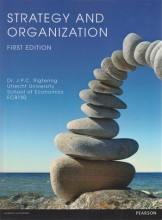Types and Forms of Organizational Change
33 important questions on Types and Forms of Organizational Change
How do you call the process by which organizations move from their present state to some desired future state to increase their effectiveness?
What are the four different levels at which planned organizational change is targeted to improve effectiveness?
- Human resources
- Functional resources
- Technological capabilities
- Organizational capabilities
What are the seven forces for change?
- Competitive forces
- Economic forces
- Political forces
- Global forces
- Demographic forces
- Social forces
- Ethical forces
- Higher grades + faster learning
- Never study anything twice
- 100% sure, 100% understanding
What are the four levels at which resistance to change occurs?
- Organizational level
- Functional level
- Group level
- Individual level
What are three forces that drive organizational level resistance to change?
- Structure
- Culture
- Strategy
What are two forces that cause functional level resistance to change?
- Differences in subunit orientation
- Power and conflict
What are three forces that cause group level resistance to change?
- Norms
- Cohesiveness
- Groupthink
What are four forces that cause individual level resistance to change?
- Cognitive biases
- Uncertainty and insecurity
- Selective perception and retention
- Habit
How do you call a theory of organizational change that argues that two sets of opposing forces within an organization determine how change will take place?
How do you call change that is gradual, incremental, and specifically focused?
How do you call change that is sudden, drastic, and organization-wide?
How do you call a theory that proposes the importance of changing role and task or technical relationships to increase organizational effectiveness?
How do you call a technique developed by W. Edwards Deming to continuously improve the effectiveness of flexible work teams?
How do you call groups of workers who met regularly to discuss the way work is performed in order to find new ways to increase performance?
How do you call a group of workers who assume responsibility for performing all the operations necessary for completing a specified stage in the manufacturing process?
How do you call an activity that cuts across functional boundaries and is vital to the quick delivery of goods and services or that promotes high quality or low costs?
How do you call a process by which managers change task and authority relationships and redesign organizational structure and culture to improve organizational effectiveness?
How do you call the process by which managers streamline the organizational hierarchy and lay off managers and workers to reduce bureaucratic costs?
How do you call the process by which organizations use their skills and resources to develop new goods and services or to develop new production and operating systems so they can better respond to the needs of their customers?
What are the three steps of Lewin's three-step change process?
- Unfeeze the organization from its present state.
- Make the desired type of change.
- Refreeze the organization in a new, desired state.
How do you call a strategy for generating and acquiring knowledge that managers can use to define an organization's desired future state and to plan a change program that allows the organization to reach that state?
What are the five steps in action research?
- Diagnosing the organization
- Determining the desired future state
- Implementing action
- Evaluating action
- Institutionalizing action research
How do you call outside consultants who are experts in managing change?
How do you call managers from within the organization who are knowledgeable about the situation to be changed?
How do you call change implemented by employees at low levels in the organization that gradually rises until it is felt throughout the organization?
How do you call a series of techniques and methods that managers can use in their action research program to increase the adaptability of their organization?
What are five ways for managers to reduce resistance to change?
- Education and communication
- Participation and empowerment
- Facilitation
- Bargaining and negotiation
- Coercion
How do you call an OD technique that consists of intense counseling in which group members, aided by a facilitator, learn how others perceive them and may learn how to deal more sensitively with others?
How do you call an OD technique in which a facilitator works closely with a manager on the job to help the manager improve his or her interactions with other group members?
How do you call an OD technique in which a facilitator first observes the interactions of group members and then helps them become aware of ways to improve their work interactions?
How do you call an OD technique that uses team building to improve the work interactions of different functions or divisions?
How do you call an OD technique in which a facilitator helps two interdependent groups explore their perceptions and relations in order to improve their work interactions?
How do you call an OD technique that brings together all of the managers of an organization at a meeting to confront the issue of whether the organization is meeting its goals effectively?
The question on the page originate from the summary of the following study material:
- A unique study and practice tool
- Never study anything twice again
- Get the grades you hope for
- 100% sure, 100% understanding
































